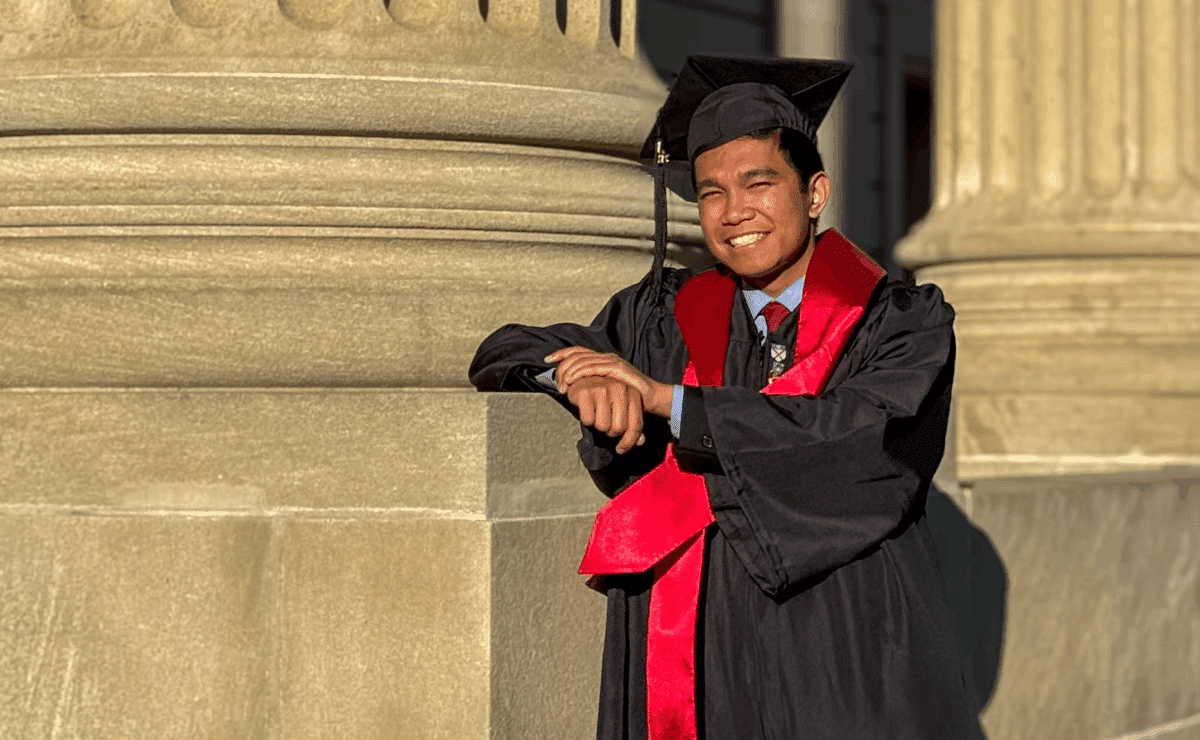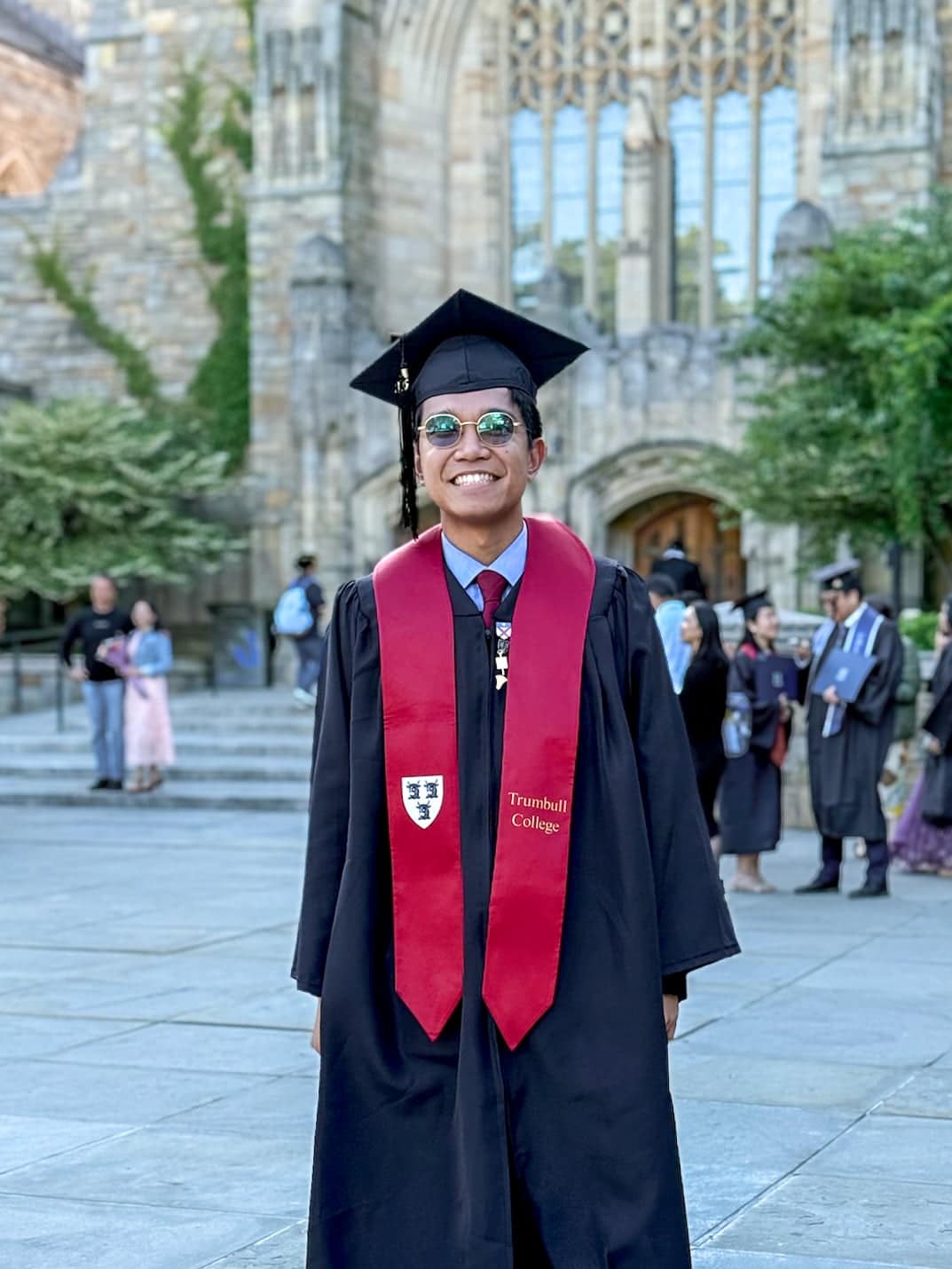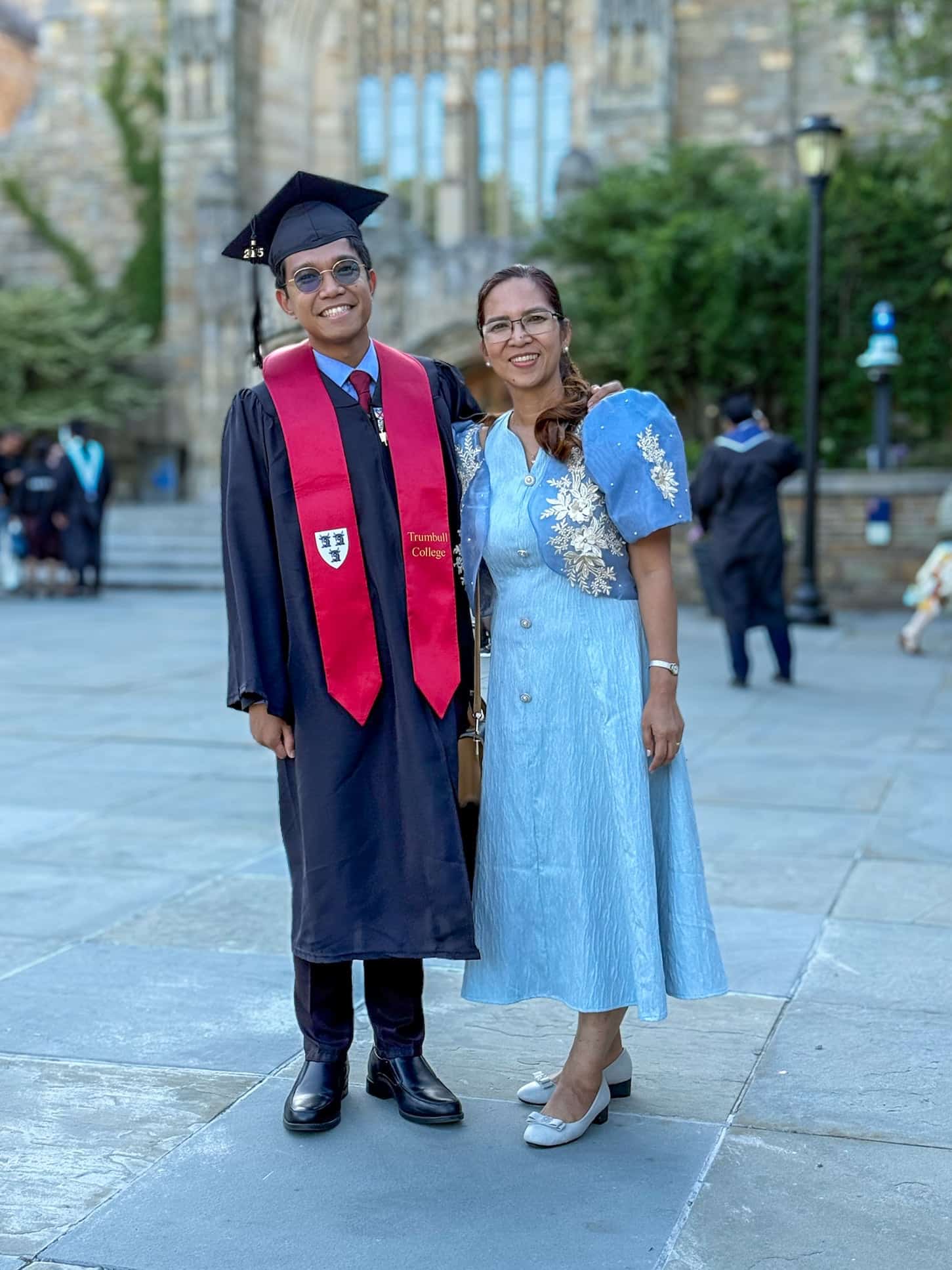Filipino Yale grad proud to uplift indigenous Tedurays on global stage

Nathan Ariston is proud to uplift the indigenous Tedurays on the global stage. CONTRIBUTED
When a student excels academically, especially one graduating with honors from Yale University, people naturally want to know the secret. What are the study hacks? The productivity methods? The success formulas?
But for Nathan Wayne Ariston, – from Upi, Maguindanao, and the first alumnus of Philippine Science High School-Central Mindanao campus in Lanao del Norte to ever receive such a feat in an Ivy League school – the answer is internal motivation.
It’s this mindset that helped him push through the challenges of completing dual Bachelor of Science degrees in Physics and Mathematics at Yale with cum laude honors.
“Achieving such feats may be hard but are possible even for someone coming from a not-so-socioeconomically-privileged background like myself,” he said in an exclusive interview with Inquirer.net USA. “I feel proud to have brought the name of my people, Filipinos and the indigenous Tedurays specifically, to the world stage in a way.”

Nathan Ariston | CONTRIBUTED
More than a personal success, Ariston’s academic journey is a historic milestone for indigenous representation in global academia.
His hard work was recognized through the prestigious Howard L. Schultz Prize for excellence in physics and distinction in both of his majors.
It’s also worth noting that graduating with Latin honors at Yale is no easy feat. Unlike most local universities, Yale’s cum laude distinction is awarded only to students with a GPA of 3.90 or higher.
Yet, amid these academic achievements, Ariston never loses sight of where it all began. “Not much credit is given to my family who has always been there supporting me in every step,” he said.

Nathan Arriston with his mom | CONTRIBUTED
“I am indebted to my parents for allowing me to pursue, without hesitation, what fills my heart the most. Being a scientist is not really one of the classic sought-for professions by Filipino parents for their children, but I am so lucky to have open-minded and supportive parents and family.”
His father, a farmer, and his mother, a public school teacher, were the first to believe in his potential. Their support gave Ariston the freedom to dream far beyond the expectations often placed on students from small towns or indigenous backgrounds.
That very same foundation now carries him into his next chapter, which is a PhD (with MA and MPhil) at Columbia University in New York, starting this fall.
Looking ahead, Ariston is determined to stay grounded in his roots. While his work in theoretical physics may take him across the globe, he envisions giving back to the Philippines, especially in Mindanao.
“I’m personally aiming to contribute to the bolstering of S&T research in Filipino, specifically Mindanaoan institutions,” he said. He also hopes to advocate for the establishment of a Philippine Science High School campus in the Bangsamoro Autonomous Region in Muslim Mindanao (BARMM).
“At the same time, I feel like there is still much work to be done to present opportunities such as what I have luckily had to deserving young students, and I believe we have lots and lots of those,” he stated.

